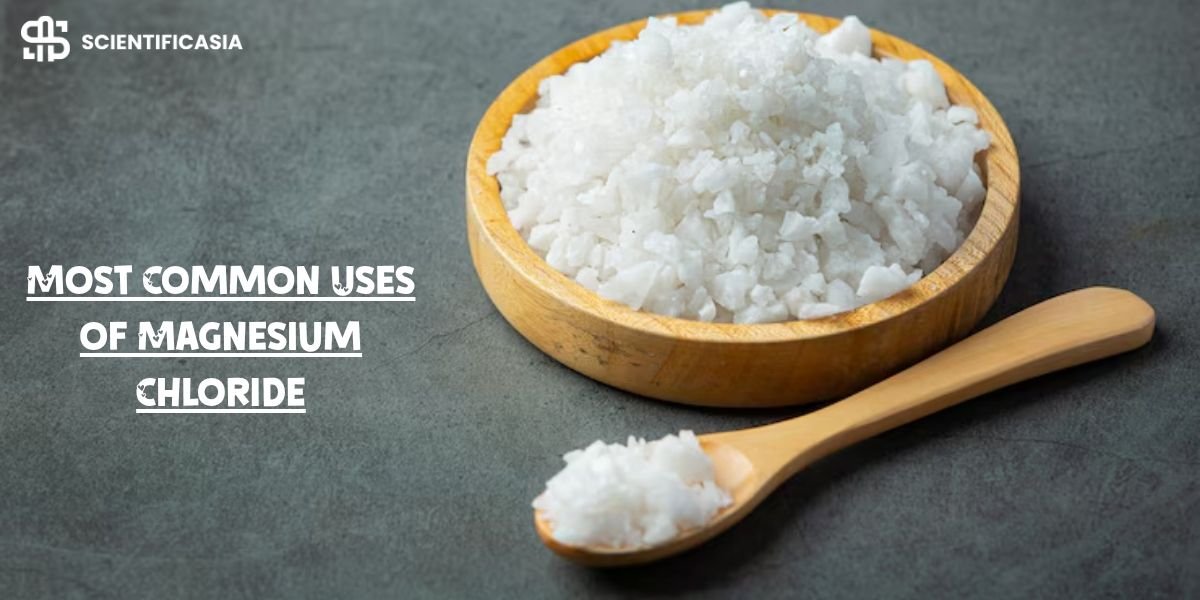Magnesium chloride is a versatile compound that often goes unnoticed, yet it plays a vital role in many industries. Many people know it for de-icing roads in winter, but it’s also essential in agriculture, health, and food production. Its wide range of uses makes it an effective solution in different fields, and it deserves more attention.
Let’s examine some common applications of magnesium chloride.
De-icing Solutions
In areas with harsh winters, magnesium chloride is beneficial. It melts ice and snow more effectively than traditional rock salt because it has a lower freezing point. This makes roads and sidewalks safer during snowstorms.
Additionally, magnesium chloride causes less environmental damage. It is less corrosive to vehicles and infrastructure, which can lead to savings on repairs and maintenance. Municipalities often prefer magnesium chloride over other deicing agents for these reasons. It is also safer for lawns and plants, which is essential for homeowners who want to protect their greenery while dealing with ice.
Agricultural Applications
Farmers find magnesium chloride beneficial for improving soil health and enhancing crop production. It provides essential magnesium, which supports the production of chlorophyll needed for photosynthesis and helps promote plant growth.
Magnesium chloride is often used as a fertilizer. It supplies the necessary nutrients that support different crops. In magnesium-deficient soils, using this compound can lead to healthier and more productive harvests.
Bulk Magnesium Chloride
Bulk magnesium chloride is a valuable resource for many businesses. Its large availability means companies can use it significantly without losing quality. This flexibility is especially helpful for industries that require consistent supplies for de-icing or agricultural purposes.
Using bulk magnesium chloride enables companies to run their operations more smoothly, reduce costs, and maintain a steady supply of this essential compound. Its versatility across various sectors highlights its numerous applications, making it a popular choice for those requiring reliable solutions on a larger scale.
Health and Wellness
In the realm of health and wellness, magnesium chloride is gaining popularity. It’s found in many dietary supplements because the body readily absorbs it. Increasing magnesium intake may promote relaxation and enhance muscle function, ultimately improving overall well-being.
Magnesium chloride can also be used topically. People often add it to salt baths, allowing the body to absorb magnesium through the skin. Many individuals report relief from muscle pain and stress after soaking in magnesium-rich water. As more people seek natural wellness solutions, magnesium chloride is gaining recognition.
Water Treatment
Magnesium chloride is effective in water treatment as well. It helps remove impurities from drinking water by acting as a coagulant.
With a growing focus on clean and safe water, magnesium chloride plays a crucial role. It binds with contaminants, improving water quality. It can also enhance other purification processes, making it valuable in maintaining clean water sources.
Industrial Applications
Magnesium chloride is important in many industries. It is a key ingredient in different chemical processes. For example, companies utilize it to produce magnesium metal, which is highly valuable in high-tech industries such as aerospace and automotive manufacturing.
Magnesium chloride is also used to make textiles and paper, among other products. Its ability to provide strength and durability makes it essential for many items. Industries rely on it to enhance their production processes and produce high-quality products.
Food Production
Magnesium chloride also plays a role in food production that people often overlook. It is used as a coagulant in the production of tofu, providing a plant-based protein source for many. The process is simple: it turns soy milk into the firm blocks of tofu found in stores.
Additionally, some foods use magnesium chloride as a flavour enhancer, improving taste. This demonstrates how magnesium chloride can benefit both everyday kitchens and industrial settings, providing tangible benefits to our food systems.
Overall, magnesium chloride connects daily life with industry, improving processes and supporting health and safety in many ways. Whether you’re walking on a cleared sidewalk or enjoying a healthy meal, it’s clear that magnesium chloride has a significant impact.









